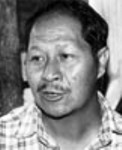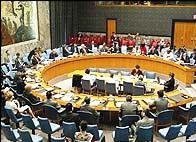 The reality that the key to our stalled peace process lies down south was apparent long before Ian Martin, UN Secretary General Kofi Annan special representative for Nepal, decided to take a pre-Tihar day trip to New Delhi.
The reality that the key to our stalled peace process lies down south was apparent long before Ian Martin, UN Secretary General Kofi Annan special representative for Nepal, decided to take a pre-Tihar day trip to New Delhi.When a senior leader of the ruling Seven Party Alliance (SPA) concedes as much, then the matter ceases to be a mere political platitude. And when the SPA leader making that assertion happens to be Narayan Man Bijukchhe, we must sit up and take notice.
As his SPA colleagues and Maoist leaders used the Tihar hiatus to build popular optimism over what has become an esoteric exercise, the president of Nepal Workers and Peasants Party injected a jarring note.
“The key is stuck in Delhi,” Bijukchhe told journalists at his home turf of Bhaktapur. “The big parties as well as the Maoists are dependent on New Delhi.” The sanguinity on each side is impelled by a desire to blame the other should things go sour.
With the latest phase of summitry stuck on the issue of Maoist arms (more than the monarchy) it is worthwhile to remember that Bijukchhe was the first critic of last November’s 12-point SPA-Maoist signed in New Delhi.
His principal objection then was the ambiguity surrounding the involvement of a third party in the monitoring/management of government and rebel weapons. What specifically irked Bijukchhe was the ease with which the SPA equated the then-Royal Nepal Army with the Maoist fighters. (We now know why the SPA did so: It desperately needed the Maoist guerrillas to thwart the royal regime’s plans to hold local and national elections.)
What really seemed to rile him was the possibility of Indian “peacekeepers” marching in under the UN flag. Bijukchhe, after all, represents a community that has always been the most skeptical of Indian motives in Nepal.
In fairness, we must note that Bijukchhe was among the vociferous critics of US Ambassador James F. Moriarty’s visit to military installations in western Nepal last month, prompting the envoy to personally explain to Prime Minister Girija Prasad Koirala that such field trips were part of his job description.
This time, Bijukchhe seems to have spoken with the Indian Ambassador Shiv Shankar Mukherjee on his mind. Mukherjee’s extensive – and widely covered – briefings in New Delhi must have focused on an initiative to break the Baluwatar logjam.
The fact that Indian Prime Minister Manmohan Singh and other ministers took time to listen to Mukherjee as the Ministry of External Affairs ranked Nepal eighth on its Relevance for India index becomes relevant here.
Nepal ranks higher than Pakistan and China in the index, which categorizes countries based on their political and strategic importance and their economic and commercial value to India over the next decade.
What kind of Indian initiative can we expect? Former premier Surya Bahadur Thapa has affirmed that during his recent visit to New Delhi he got the clear impression that India supported multiparty democracy as well as constitutional (not ceremonial) monarchy. In effect, the twin-pillar theory is still valid across the southern border.
Now unless Thapa has lost his long acknowledged ability to read the Indian mind correctly, any new initiative from New Delhi would be focused primarily on the Maoist weapons. As much has already been suggested by retired Major-General Ashok K. Mehta, India’s scholar in residence on the Nepalese Maoists.
There may be another overriding imperative. The recent “democratization” of the Nepalese military has not changed the practice of the top generals of India’s and Nepal’s armies enjoying honorary chief status in each other’s countries.
With the implication of the Maoists’ quest for parity with the Nepal Army so obvious, can New Delhi be expected to exercise hitherto unused leverages on the Maoist rebels? Was the recent pledge by South Asian Maoists to turn the enflame the region an act of pre-emption?




